Hyperoptic Get £500m to Bring Forward 1Gbps UK Broadband Rollout
City focused “full fibre” (FTTP/B) broadband ISP Hyperoptic has announced a significant equity raise with the investment arm of the Government of Abu Dhabi (Mubadala Investment Company), which in total means they will now have £500m to help them bring forward their roll-out to reach 2 million UK premises by 2021.
At this stage they’ve not yet disclosed exactly how much money Mubadala plans to push into the ISP, although if the total is now £500m then based on past investment news we can speculate that it must be at least £75m (likely more since the £500m is being expressed as a total that will be used over the next 3 years). Only a few months ago Hyperoptic confirmed that they had raised £250m via debt (here), which was on top of the £175m or so of private investment that had been raised since they first came to life.
At present their 1Gbps capable ultrafast full fibre network is said to cover well over 500,000 UK premises in parts of multiple UK “Hyper Cities” (expected to reach 50+ cities and towns by Q1 2019). Until today the aim was to then reach 2 million premises by 2022 and after that there was a future aspiration to reach 5 million premises by 2025 (here). As a result of today’s news the first target will now be hit in 2021 and the second in 2024.
Advertisement
The ISP’s normal approach involves connecting their Fibre-to-the-Premises (FTTP/B) style network to large residential or office buildings in dense urban areas (e.g. Multi-Dwelling Units with at least 50 units), although they have also expanded to do lots of council (social) homes.
Mounir Barakat, Executive Director of Mubadala ICT, said:
“We have been following Hyperoptic for the last couple of years and have been impressed by the impact they have had on the UK fibre market, taking a strong leadership, catalyst and disruptor role. We are excited to be joining the Hyperoptic team, providing substantial capital and balance sheet power as support for their clear vision for the future of the UK telecom market.”
Boris Ivanovic, Hyperoptic’s Chairman, added:
“Backing by such a significant sovereign wealth fund, not only provides the firepower to deliver on our plan and vision, but is a further proof of the road we have taken in fundamentally transforming a very slow and reactive UK telco market. Together with the new management team, the road ahead is very exciting indeed.”
One other good bit of news to come out of today’s announcement is that Hyperoptic will aim to extend their deployment via over 5,000 kilometres metro fibre network using Duct and Pole Access (DPA) by 2021. This is the regulated name that Ofcom has given to the process of allowing rival ISPs to access Openreach’s (BT) existing cable ducts and telegraph poles in order to run their own fibres (aka – Physical Infrastructure Access).
The initial cities to benefit from this DPA approach will include Greater London, Manchester, Glasgow, Edinburgh, Liverpool and Leeds in 2019. A further 10 cities to be covered in 2020 will be announced in the second half of 2019. Crucially this metro fibre deployment “will allow Hyperoptic to broaden its reach beyond its traditional focus of large residential blocks, to extend service to smaller blocks, housing, and businesses.”
At this stage it remains to be seen how much ordinary “housing” might be reached by the new approach, although it’s impact looks set to represent only a small slice of their overall roll-out plan. Nevertheless today’s news certainly adds further competition into the increasingly competitive market for “full fibre” (FTTP/H/B) broadband deployments, which is already in desperate need of more skill telecoms engineers.
Advertisement
On closing of the new transaction, Mubadala will acquire a minority stake in the Company and Mounir Barakat, Executive Director (ICT) will be joining Hyperoptic’s Board of Directors as an observer. We note that LionTree Advisors acted as the exclusive financial advisor to Hyperoptic for this deal.
The ISP has also announced additions to their senior management team to support its rapid development and growth, including: Charles Davies as MD ISP, Moray Falconer as MD Infrastructure, Boris Dragovic as Chief Strategy & Transformation Officer (CSTO), Pascal Koster as Chief Technology & Information Officer (CTIO) and Daniel Butler as Director Communications and Policy Strategy.
Mark is a professional technology writer, IT consultant and computer engineer from Dorset (England), he also founded ISPreview in 1999 and enjoys analysing the latest telecoms and broadband developments. Find me on X (Twitter), Mastodon, Facebook, BlueSky, Threads.net and Linkedin.
« Three UK Commit £2bn to Commercial 5G Broadband Rollout in 2019
GSMA Demands More Radio Spectrum to Fuel 5G Mobile or Else.. »





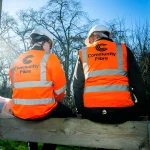

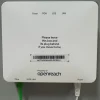
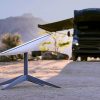
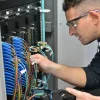
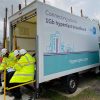







































Comments are closed